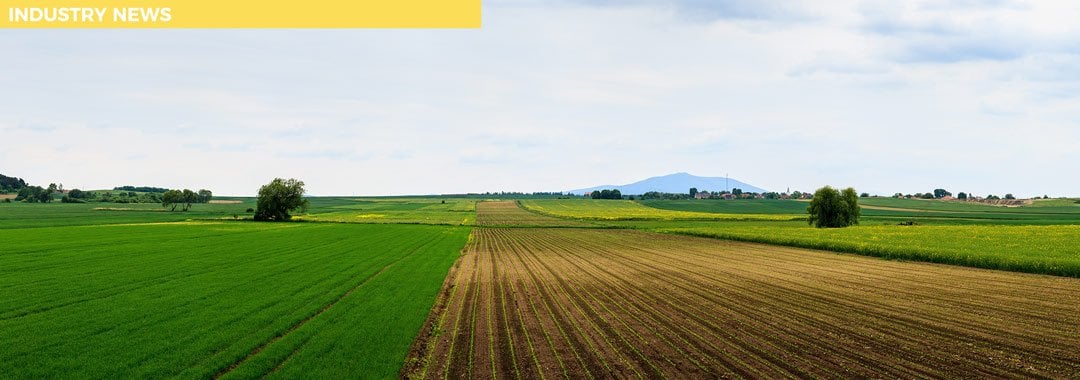No products in the cart.
Industrial Hemp Farms
When the U.S. Department of Agriculture (USDA) released an interim set of regulations last October regarding hemp cultivation, many farmers felt relieved to finally have definitive guidelines that would ensure their hemp crops were going to be compliant. However, the new rules are presenting a different set of problems that have elicited concern among farmers who are worried about whether the hemp crops they invested in will actually be profitable.
USDA Hemp Program
Under the new protocol, farmers will have to apply to be licensed through the USDA hemp program, although states or Indian tribes can choose to submit their own hemp production regulations to the USDA. Applicants can be rejected if they have been convicted of a felony related to a controlled substance within the past 10 years.
Farmers are required to submit information relating to their land and how much acreage of hemp they are growing, so that the USDA can estimate the total amount of hemp being produced in the United States.
Less than .3% THC
The farmers must also ensure that their hemp crops contain less than .3% THC, which is the federal maximum allowed under the law; the crops are to be tested 15 days before harvest, and the testing must be done by a registered Drug Enforcement Agency laboratory. If the plants are found to be “hot”, or having too much THC, they are legally considered “marijuana” and must be disposed of as such, which the USDA claims to have no jurisdiction over.
The guidelines also allow for the safe transportation of industrial hemp throughout the US, even if it is within one of the four remaining states that have not legalized hemp production. There have been several cases which resulted in the confiscation of legal hemp that was being transported through a prohibited state, and the new regulations will disallow restricting the interstate transit of industrial hemp.
What is Hot Hemp?
However, a lot of farmers feel that the regulations are creating impossible hoops to jump through, particularly with regard to the destruction of “hot” hemp crops — if the crop tests too high for THC then they have no other recourse than to destroy their investment. Many hemp growers hope to at least reach a compromise that would still allow them to profit by enabling the sale of these crops for use in the creation of biofuel or compost.
Further adding to this problem is that it can be very difficult for farmers to control the conditions that cause their crops to be “hot”; for instance, it has been shown that two hemp seeds from the same batch will produce different amounts of THC based on where they are grown, with soil and climate being important factors. A farmer can be considered guilty of “negligent violations” if it is found that they did not use reasonable efforts to ensure that the plants don’t test for more than 0.5% THC at dry weight. Although it is not a criminal issue, if a farmer violates this rule three times within a five-year period, they will be restricted from producing hemp for the next five years.
Farmers Worry about Testing
Many farmers believe that testing 15 days before harvest is counterproductive because crops will often test for higher amounts of THC at that time — and recommend to have either the maximum THC limit raised at the 15 day testing timeline or have the testing extended 30-40 days prior to harvest so that the levels will not be as high.
Growers are also worried that there will be an incredible backlog at the limited number of DEA facilities that are able to test their hemp, and the regulations aren’t clear on what they should do in that event: are they allowed to harvest the hemp after 15 days even if it hasn’t been tested yet? Also causing issues is that total THC is being tested for, as opposed to delta-9 THC, which is the psychotropic compound that distinguishes hemp from commercial marijuana. Changing the guidelines regarding the type of THC that is tested for will make it even more difficult for farmers to prevent their crops from testing “hot”.
Farm Bill Signed
The signing of the Farm Bill resulted in a huge wave of optimism for the potential of such a valuable commodity like hemp. Unfortunately, over-regulation of the industry could stifle it before it is really able to take hold, and the people who stand to lose the most are the small farmers who took a chance and risked everything to invest their future in these new crops.
The USDA issued an open call for people to give their feedback on the new hemp production regulations, and the comment period will be open until January 29, 2020. Comments can either be submitted through the regulations.gov website, via fax: 202-720-8938, or through the mail: Docket Clerk, Marketing Order and Agreement Division, Specialty Crops Program, AMS; USDA; 1400 Independence Ave. SW, STOP 0237; Washington, DC 20250-0237.




